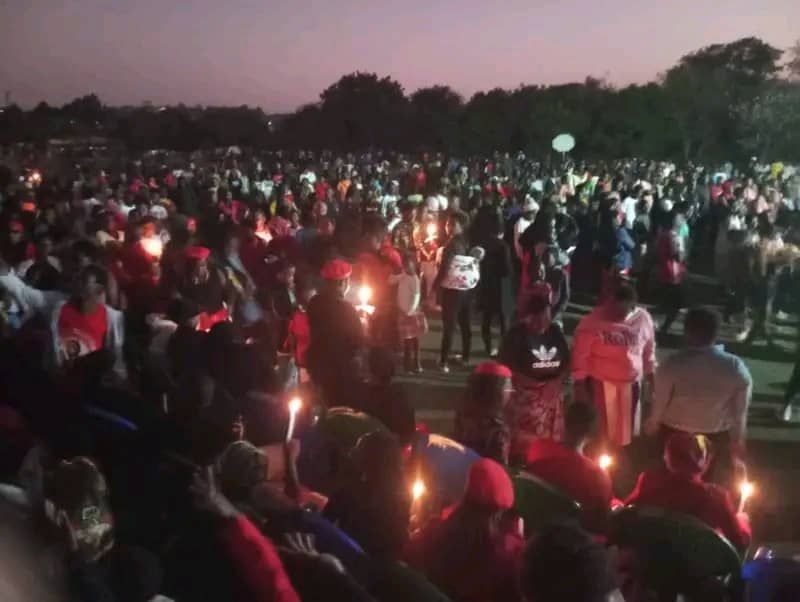By Burnett Munthali
Candlelighting memorial services have become a significant cultural and political ritual, offering communities a poignant way to remember, mourn, and reflect. These ceremonies, marked by the lighting of candles, serve as a powerful symbol of collective grief and solidarity. Their impact extends beyond mere commemoration, influencing social and political consciousness.
The significance of candlelighting memorial services:
Firstly, the act of lighting candles is a symbol of bringing light to darkness, representing hope, remembrance, and the enduring spirit of those who have passed. It transforms personal loss into a shared experience of community solidarity.
Candlelighting serves as a means of preserving and honoring the memory of individuals who have made significant impacts or whose lives have been tragically cut short. It helps communities to collectively remember and celebrate their legacies.
Secondly, for many, participating in a candlelighting memorial provides a sense of closure and comfort. It allows individuals to express their grief in a communal setting, fostering a supportive environment for healing.
These services help to build empathy among participants, as shared mourning and reflection can strengthen communal bonds and provide emotional support.

Political and Social Dimensions:
Firstly, candlelighting memorials are often used to draw attention to social and political issues. By organizing these services, communities can highlight causes related to the individuals being honored, such as human rights, justice, or environmental concerns.
These services can also act as a platform for mobilizing collective action. The visibility and emotional weight of candlelighting can inspire participants to engage in advocacy or support related causes.
Secondly, in some contexts, candlelighting memorials are integrated into public demonstrations and protests. They serve as a non-violent method of expressing dissent and solidarity, helping to amplify voices calling for change or justice.
The serene and contemplative nature of candlelighting often contrasts with more confrontational forms of protest, providing a peaceful yet powerful form of expression.
Impact on Communities:
Candlelighting services bring people together, fostering a sense of unity and shared purpose. They provide a common space for individuals to come together and support one another through times of sorrow and reflection.
By participating in these rituals, community members can strengthen social ties and reinforce a collective identity, contributing to a more cohesive and resilient community.
These memorials offer an opportunity for collective introspection. They encourage participants to reflect on the lives of those being honored, as well as on broader societal issues, prompting deeper consideration of personal and collective values.
The act of lighting a candle in memory can inspire resilience and a renewed commitment to addressing the issues or values associated with the individual or cause being remembered.
In conclusion, candlelighting memorial services serve as a profound expression of communal grief and solidarity, impacting both individuals and societies. Through their symbolic and emotional resonance, they provide a space for reflection, healing, and advocacy. Their role in fostering unity and raising awareness underscores their significance as a powerful tool for collective memory and social change. In honoring the past and addressing contemporary issues, candlelighting memorials continue to shape and inspire communities, reinforcing their resilience and commitment to justice and solidarity.


